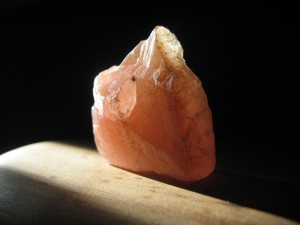
– Photo by Jan Ketchel
Just who is that Inner Child we hear so much about? To one onlooker, a child being sternly reprimanded by a parent at the supermarket is a brat receiving just punishment. In contrast, another witness may declare atrocious abuse on the part of the parent as the innocence of the Golden Child is severely shattered by the reprimand. These are diametrically opposing reactions. One person experiences the child as an entitled big baby, the other sees a divine innocent child.
What makes one bystander see a Demon and the other a Divine Child has everything to do with the inner child projection of each observer. One person may harbor a powerful infantile shadow self that was either overly indulged or overly neglected in childhood. Given that this rejected child self remains rejected within the personality, this person might tend to agree with the parent’s stern treatment of this unacceptable Demon Child as a reinforcement of their own conscious attitude toward their own inner child. Of course, it’s also entirely possible that this rejected child projection might go the way of sympathy for the reprimanded child.
Another person may be at a stage of life or in a life circumstance that has become stale, wooden or frozen, lacking connection to the deepest waters of life. On the surface they may be bored and depressed. They may need the renewal of the spontaneity, freedom and innocence of the inner child in their own life to break through the quagmire of their current discontent. For them, the disciplining of the misbehaving child might be experienced as an affront to the Golden Divine Child, a symbol of the Self, their key to renewal.
This duality of possibility frequently shows up in the appearance of a child in a dream. Often we might dream that we have a child we didn’t know about. On the one hand, this child might represent an underdeveloped aspect of ourselves, that we may or may not be aware of, that is ready to emerge into our everyday life, an opportunity to “grow this part up” at this stage of life. In this case, the challenge would be for the ego to acknowledge vs. deny this underdeveloped part and take up the challenge of supporting needed growth.
On the other hand, it might be pointing to an infantile attitude that is overshadowing our lives and behaviors. Once again the challenge for the ego, in this scenario, is to overcome its blindness and take responsibility for becoming a responsible person, not asking others to cater to or compensate for its big baby attitude.
Still another possibility is that the dream child is the Divine Child, a symbol of the Self, that is opening the door to a new stage of our deepest unfolding by reflecting the need to return to pure innocence, dropping our plastic persona and diving naked into an ocean of renewal. The child is completely unencumbered by education and socialization, hence, serves as the best symbol of being closest to nature without the interference of mind. Sometimes, baring ourselves to this level is the only way to find our way back to true meaning in life.

– Photo by Jan Ketchel
The truth is that our Inner Child, as it appears in dreams, or as it projects itself onto the mirror of children in the world, can be either Demon or Divine. It is the work of consciousness—that is, of the ego—to study the appearance of the child and reflect honestly and deeply to discern who it symbolizes at this time in life, why it has appeared, and then act accordingly.
Mistaken identity can result in disastrous parenting where a child needing firm discipline may be inadvertently groomed as a little prince. Alternatively, an unusual or gifted child might be severed from its golden potential through insistence upon strict conformity and obedience, squelching its creative spirit in the process.
Inwardly, we might make the mistake of allowing the little prince within to rule the personality. Alternatively, the inner child that reflects our deepest flowing nature might hold the key to our spiritual renewal if we let it take the dive.
You make the call: Who is your inner child in its present manifestation? Demon or Divine?
Pondering,
Chuck
